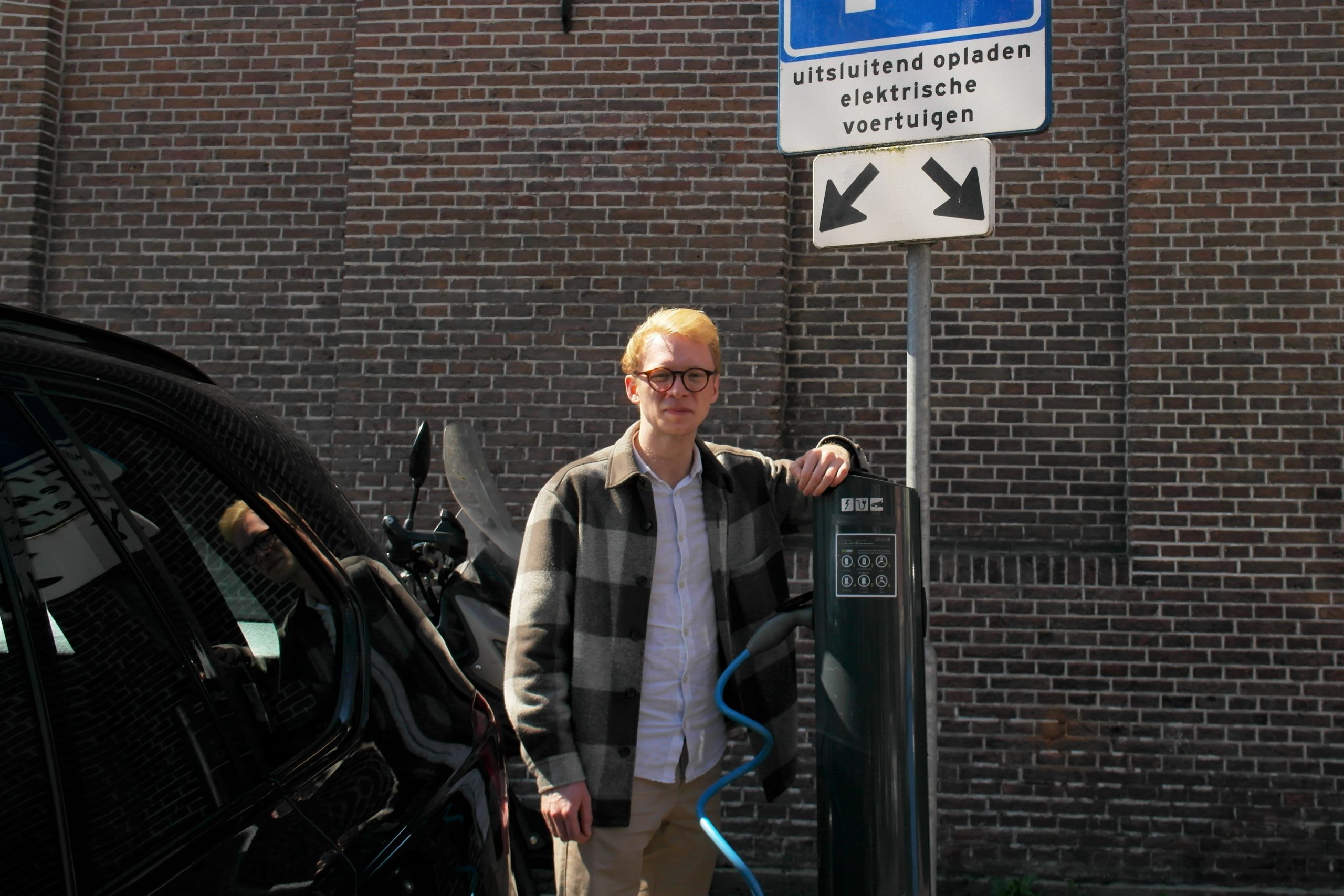Working with a PhD candidate on his bachelor’s end project, Niels Goedegebure managed to turn his research into a conference paper. How did he do that?
Niels Goedegebure: “I really like the interplay of tackling real societal problems with big mathematical approaches.”
“I started studying in 2018 at the Faculty of Technology, Policy & Management in the Energy & Industry track. During my bachelor’s end project (BEP) I wanted to combine some of the more mathematical things I learned from my finance minor with the energy side of things. I got involved in the project of PhD candidate Roman Hennig who is modelling new energy network tariffs.
I wanted to do something in energy and something on the more innovative side because that’s where I think the most interesting and most useful applications are in terms of speeding up the energy transition. There are a lot of new problems that are arising now. For example, 10 years ago you didn’t have the problem that you might have too many electric cars on your street causing the transformer to potentially ‘blow out’. It wasn’t an issue. But now it’s starting to happen on some older streets and if we don’t do anything then it will be a big problem 10 years from now.
The model Roman made basically models a street with houses that consume electricity just like we all do. Then a part of the street has electric vehicles as well and of course that demand is added to the amount of electricity that is being used. If you add the cost component to the model, people can charge when prices are low. At a national grid level that’s good because it helps to balance things, but at the street level that can create a problem because if there is one hour with really low prices then you might have too much demand for one single street and your local grid can’t handle that.
‘Every day you want to plan charging your car in advance’
What is being proposed right now is new network tariffs to prevent congestion, so kind of like taxes to incentivise using electricity when it’s not in high demand. Now we pay a certain amount each year to the provider and there is no variation in the price, but in a couple of years they want to have a new scheme where it’s more expensive to use electricity at peak times. There are a lot of different ways to do that, but it’s still an ongoing debate because there’s no consensus yet on the best way to do it.
Roman made a model to model some of the proposed new tariff schemes, but they assume that you could know the electricity prices for four days in advance. That’s not quite realistic because it can vary. I basically made ‘fake’ forecasts, statistically sound forecasts that are realistic, and I fed the forecasting scenarios into the model to add the uncertainty. Every day you want to plan your charging in advance and you’re uncertain of what the price is going to be. The presumption was that it would actually worsen the performance of the tariffs, that the tariff schemes would work less well to incentivise going off the peak time. But in the model, it didn’t deteriorate that much and sometimes it actually helped to mitigate peaks because if people have more uncertainty, then they will charge a bit more randomly.
Roman had already been working on this project for two years, so I worked with him and basically extended the model. When the final grading was done on my BEP I asked if we could try to make it into a conference paper. There was this conference happening that was perfectly suited for the topic and we only had one month to write and submit the paper. We discussed how we could condense it down to six pages and we did it and it got accepted. Because it’s a bachelor’s project, we had limited resources and time. It’s a smaller scale experiment, but it had never really been done in this way so I think that’s the main contribution.
I finished my bachelor’s last year and I’m currently bridging towards doing a master’s in applied mathematics here at TU Delft so I’m taking a lot of mathematics courses. I really like the interplay of tackling real societal problems with big mathematical approaches. I had so much fun doing this research so I think I would find it quite suitable to pursue a PhD in the future.”
- Generating Electricity Price Forecasting Scenarios to Analyse Price Uncertainty Impact on Tariffs was accepted for the 17th International Conference on Probabilistic Methods Applied to Power Systems.
- Want to be featured in Humans of TU Delft? Or do you know someone with a good story to tell? Send us an e-mail at humansoftudelft@gmail.com
Heather Montague / Freelance writer



Comments are closed.